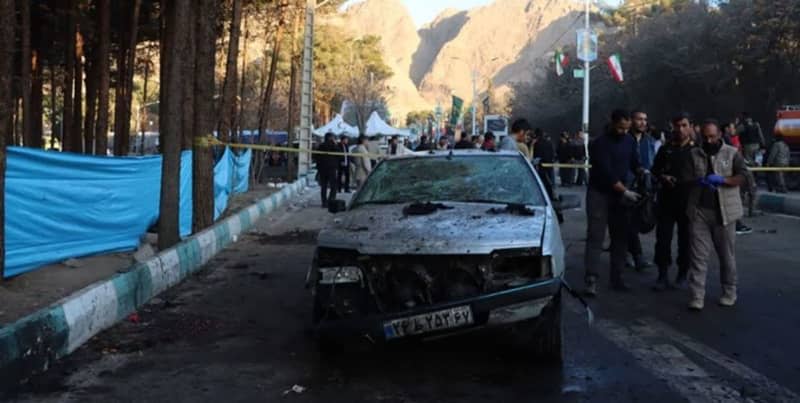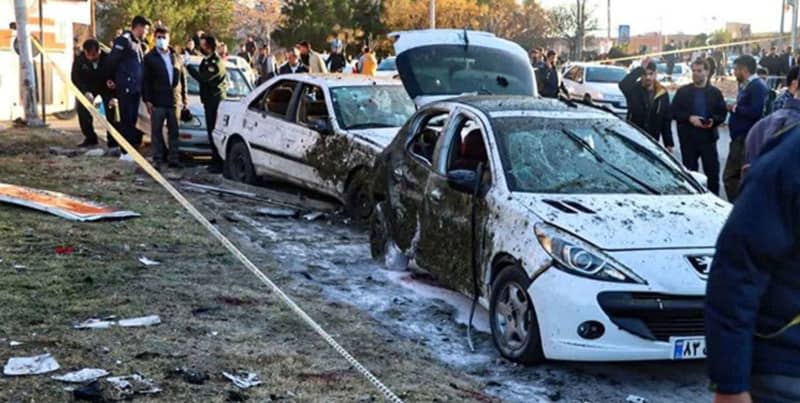First arrests made after Iranian suicide blasts, minister says

- Oops!Something went wrong.Please try again later.
The first arrests have been made in connection with the suicide blasts in Iran that left more than 80 people dead two days ago, Interior Minister Ahmad Vahidi said
According to the Iranian news agency Tasnim, the secret service arrested the suspects in five provinces.
The death toll of the Islamic State-claimed attack rose from 84 to 89 on Friday, according to state media.
At a mourning ceremony for the victims in the southern city of Kerman, representatives of the Iranian leadership threatened their enemies.
President Ebrahim Raisi said, "Be sure that the power of initiative is in the hands of our God-ordained troops." As usual, the speeches were accompanied by shouts of "Death to Israel" and "Death to America."
The terrorist milita Islamic State claimed responsibility for the attack. According to the militant Sunni Muslim group, two suicide attackers detonated their explosive belts during mourning ceremonies on Wednesday to mark the fourth anniversary of the death of Iranian General Qassem Soleimani.
It was the deadliest attack in the 45-year history of the Islamic Republic. According to Iranian media reports, a dozen children under the age of 15 were among the dead.
IS considers the predominant Shia majority in Iran to be apostates of Islam and despises them.
However, Rita Katz, head of the SITE Intelligence Group, which specializes in extremist propaganda, believes that the influence of IS in the region is limited.
IS has no recognizable leader and no central headquarters, the expert wrote in an analysis. According to her, the Islamist organization therefore has "no near-term prospects to regain the footing it once held in the Middle East."


